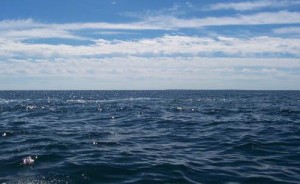Madog: The Missing Trans-Atlantic Poem August 26, 2010
Author: Beach Combing | in : Medieval , trackback
Universal mourning in the Beachcombing household as (i) twelve hours on trains and in hospital beckons and, more importantly, (ii) the beloved Beachcombing babysitter has announced her intention to go to South Africa. Beachcombing spent several hours trying to convince the local South African consul that said babysitter was actually a terrorist threat but to no avail. So resigned to this loss and in recognition of a sad day Beachcombing thought that he would have a post on ‘proto-Afrikaans’, or medieval Dutch as it is more generally known.
Now among the many vanished epics of the Middle Ages few losses pain Beachcombing as much as that of the thirteenth-century Dutch poem, Madog. Regular readers might shake their heads at this: bar an unhealthy fascination for Flanders cat-killing Beachcombing has never shown much of an interest in the Flemish or Dutch world, medieval or otherwise. Why then this sudden obsession with the literature of the Low Countries?
Well, Madog was a twelfth-century Welsh prince who, according to Welsh myth, sailed off into the Atlantic and discovered a mysterious island there. That surely is bizarre enough to justify inclusion? His legend can be paralleled in other stories from the Celtic fringe and he seems to have been a Welsh equivalent to the Irish St Brendan.
What makes Madog even more interesting is that in the Elizabethan age the English claimed that Madog had discovered the Americas three hundred years before Columbus and that, therefore, the Americas were theirs! Beachcombing will leave the audacity of this to one side: the English using their battered and much-abused neighbours the Welsh for a land-grab claim. He will note though that legend spawned legend including the many ‘I-was-out-in-the-wilderness-and-I-met-a-Welsh-speaking-Indian’ tales of American pioneers in the eighteenth and nineteenth centuries. (Another post, another day). There are also some delicious attempts to prove that Amerindian languages were influenced by Welsh.
The difficulty for scholars today is that we know almost nothing about the original Madog legend bar a line of twelfth-century Welsh poetry and lines from two fifteenth-century Welsh poems. If the Madog poem survived it would be the Holy Grail of Madog studies. Indeed, if it were to turn up tomorrow it would be the equivalent of someone finding an A-Z to Atlantis tucked into a manuscript of Plato’s Republic.
Now Beachcombing can prove that Madog (the poem) existed because in the prologue to his poem Reynard, the author, Willelm the Fleming named Madog as another poem he had written. But nothing else is known and Willelm himself is an utterly obscure figure. He doesn’t even – history’s ultimate insult – have a Wikipedia page.
Willelm, Beachcombing would suggest, had borrowed from the Welsh – as other Continental writers borrowed from Welsh or Breton Arthurian myth – and elaborated these legends in his own tongue. There was an important Flemish settlement in Pembrokeshire, Wales so there is even a credible link between Willelm’s homeland and the Welsh.
End of story? Important poem lost. Beachcombing weeps and consoles himself with the thought that perhaps it wasn’t the Atlantic sailing Madog, but another less important one.
But no. There is more. Kind of.
Richard Deacon in his Madoc and the Discovery of America (1966) made an exciting claim. A French scholar Duvivier had been in touch and had told Deacon that a précis of the poem survived in a French manuscript. This fourteenth-century manuscript supposedly told how Madog with his sea-nymph wife searched for the fountain of youth in the ocean. They found the fountain and then brought others there in a colony where all lived according to the precepts of love.
However, after the celebration, the problem. Richard Deacon’s book has three desperately important sources that not a single other Madog scholar has ever seen. And they are described in such a way that the author could deny the source: e.g. Deacon was relying on the French scholar Duvivier (who Beachcombing has found no trace of).
Beachcombing does not really know how to put this politely. However, looking around the internet he has seen that Deacon (true name Donald McCormick, obit 1998) is sometimes said to have used unverifiable sources in his other books, mainly on intelligence matters. And…
Does any one else have reflections on the quality of Deacon’s/McCormick’s sources? Drbeachcombing AT yahoo DOT com would love to know – he’s been wondering about this for years and years. Beachcombing is fairly confident that this précis does not exist – but five Madog books to anyone who can prove Beachcombing wrong and one Madog book to anyone who can find evidence of the mysterious (non-existent?) Duvivier.
***
1st Sep: Landulph sent in this email giving Beachcombing the information that he has sought for years. ‘Unfortunately, Donald McCormick (aka ‘Richard Deacon’) is a notorious hoaxer, despite his distinguished background in Fleet Street and numerous best-selling books. See these two links for details:
http://www.casebook.org/dissertations/maybrick_diary/mb-mc.html
There are other instances (such as his biography of the 17th-century ‘Witchfinder General’ Matthew Hopkins) of McCormick simply inventing and/or ‘discovering’ a source document out of whole cloth! Basically, the upshot of these revelations (most of which did not surface until after his death in 1998) is that NOTHING McCormick writes on anything can be trusted – unless, of course, it can be corroborated from a more trustworthy source. Why he would engage in this extraordinary conduct (particularly when most of his books cover such fascinating subject matter in their own rights) is perhaps the greatest mystery of all, one more fit for a psychologist than a historian.’ Well said Landulph! Beachcombing will return to this topic in another post. He wants to note immediately though that McCormick worked for British intelligence in the war and that never did anyone any good… Thanks Landulph!



